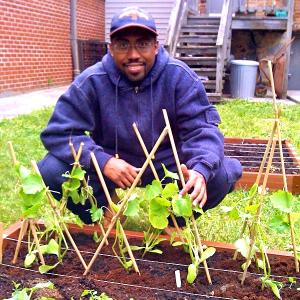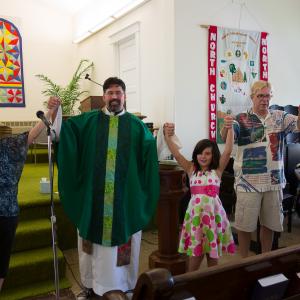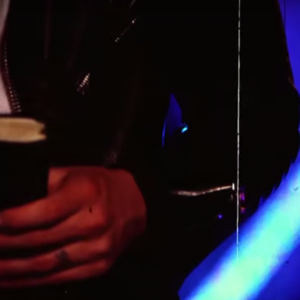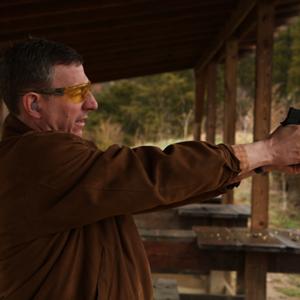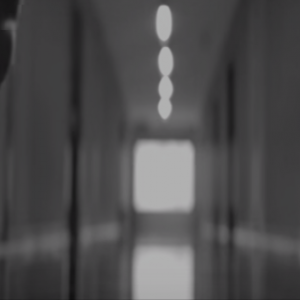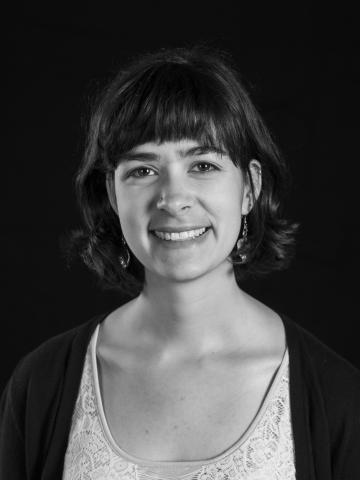
A transplant from the Midwest, Caroline grew up in Kansas City and went to school at Kalamazoo College (yes, Kalamazoo is a real city). There, she studied Religion and Anthropology/Sociology with a focus on American Christianity, feminist theology, and conceptions of religious and secular space. While at school, Caroline spent a lot of time in the basement of the Chapel, learning to love messiness of interfaith work.
An avid member of the Presbyterian Church (USA), Caroline has served the Church as a Ruling Elder, an intern for the Covenant Network of Presbyterians, and an Advisory Delegate to the PC(USA) 221st General Assembly. She has also helped keynote Presbyterian youth conferences. None of this would have been possible without the profound examples of grace the PC(USA) has continually demonstrated to her.
A lover of words, Caroline’s writing has appeared on Believe Out Loud, A Season of Welcome, and Ecclesio: Conversations on the Current Scene through a Gospel Lens. She is grateful to share her thoughts with anyone who will listen. You can follow her on Twitter @Carolinesb11.
Posts By This Author
The Power Dynamics of Skittles and M&Ms
Today the whole internet is talking about Donald Trump Jr.’s recent tweet comparing refugees to poisoned Skittles.
When I first saw the tweet, I was sickened by Trump Jr.'s — and by extension our country’s — inability to see refugees as human beings in need of help. But I also was reminded of a similar tweet with a vastly different response two years ago.
Short Takes: Heber Brown III
Five Questions for Heber Brown III
Bio: Rev. Heber Brown III is pastor of Pleasant Hope Baptist Church in Baltimore. Brown, Aleya Fraser, and Darriel Harris started the Black Church Food Security Network to connect black churches in food deserts with black farmers and urban growers.
Website: blackchurchfoodsecurity.net
1. How did the Black Church Food Security Network get started? As a result of the uprising [following the death of Freddie Gray], many corner stores in the most impoverished neighborhoods in Baltimore were put out of commission. It was an unjust arrangement to have entire neighborhoods dependent on corner stores for their food before the uprising, but the uprising intensified that already strained and unjust social arrangement.
Aleya [Fraser] started to call her farmer friends and food distributors—African-American grocers in Philadelphia and D.C.—and they started moving food to Baltimore. We transformed my church into a food depot and distribution center. We would process food donations from all over, and then we would pile the food in our church bus and I would drive the food around to those communities that needed food. We would set up shop on the corner and give out the food. We did that for nearly three weeks, and we realized that we had the beginnings of an alternative food system. The name came later; the action came first.
On Twitter, LGBTQ Faithful Find a Voice

Image by JP Keenan/Sojourners. Photos courtesy faithfullylgbt.com.
For LGBTQ people of faith, Twitter is becoming a vital space for a diversity of stories to emerge. And these stories — whether of the pastor down the street or of the people sitting in the pews — allow those of us lucky enough to see them a glimpse into the lives of everyday superheroes.
5 Questions for a Pastor Taking Mental Health Seriously
Rev. J. Barrett Lee is pastor of North Presbyterian Church in Kalamazoo, Mich., whose mission is to "practice our ministry alongside people who live with mental illness." Website: wearenorth.org
1. Why is it important to talk about mental illness? The only time people want to talk about mental illness as a broad social issue is when a mass shooting occurs. It’s a huge problem because it perpetuates the myths of what mental illness is and how people with mental illness operate. People think, “What if some mentally ill person gets a gun and is going to shoot up a church or a school?” But the reality is that people who live with mental illness are actually 10 times more likely to be victims of violence than perpetrators of violence. I don’t know a single person in my church who even owns a gun.
2. How is North Presbyterian’s call to ministry unique? We decided that our ministry with people living with mental illness was not going to be a side project. It wasn’t going to be something we did in addition to our ministry. We felt God calling us to reorient the entire life of our congregation around making a space where all people can be treated as equal partners in Christ’s service. We started the Togetherness Group, a weekly social activities group where the whole goal is to be together. We do lots of fun activities, whether that’s going out to lunch, going to the zoo, or just playing bingo on a rainy day. For a lot of folks, this is their one safe space each week when they can get out of the house, be treated like a human, embrace their own humanity, have a good time, and take some of the pressure off of daily living.
3 Things a Muslim Scholar Taught This Presbyterian About Faith and Feminism
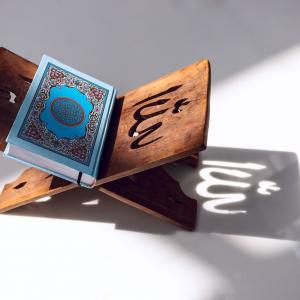
Image via Saida Shigapova / Shutterstock.com
In 2005, Amina Wadud stepped in front of a crowd of one hundred Muslims, women and men, to offer a sermon and lead them in prayer — something previously unheard of for a woman to do. Wadud has been vocal about gender equality in Islam for decades. She is a prominent speaker, writer, and scholar of Islamic studies. But I didn’t know of her until my senior year of college. In my last class as an undergraduate student, I decided to take a class on Islam. I was intrigued by our reading list at the beginning of the semester, but Amina Wadud and her book, Inside the Gender Jihad: Women’s Reform in Islam, were just words on my syllabus.
Rescuing Evangelicalism
A conversation with Deborah Jian Lee, author of 'Rescuing Jesus'
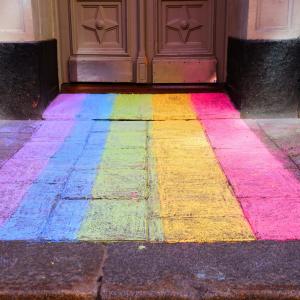
Image via connel/Shutterstock.com
Among the people who Lee studies in Rescuing Jesus is Sojourners’ own Chief Church Engagement Officer Lisa Sharon Harper, who confronted the overwhelming whiteness of her evangelical campus ministry. Despite hearing otherwise from her religious leaders, she knew her whole identity as an African-American woman with a commitment to racial justice was an essential part of her faith.
And many other leaders are featured: Jennifer Crumpton, who grew up hearing conservative gender complementarian teachings, now challenges the patriarchal structures of evangelicalism through her ministry and call to lead. And there’s Will Haggerty and Tasha Magness and other LGBTQ students at Biola University, a private Christian college with explicitly anti-queer policies. Despite the threat of expulsion, these students founded an underground network of support and solidarity for LGBTQ Biolans.
Hipster Church: Reality Show 'Rich in Faith' Is a Little Too Real
Within the last sixty years, numerous pastors have used new forms of media — beginning with television — to reach thousands of people eager for their message. Pat Robertson founded the Christian Broadcasting Network, which continues to appeal to millions of people around the world. Joel Osteen’s ministry is broadcasted into every U.S. television market. And Billy Graham, arguably one of the most famous evangelical pastors, started radio and television programs, as well as numerous books, a magazine, and a syndicated newspaper column. Before hipster Christianity was on Instagram, these televangelists utilized methods of evangelizing considered new and strange.
Guns and the Evangelical Christian
The Armor of Light, directed by Abigail E. Disney. Fork Films.
AT FIRST GLANCE, Abigail Disney’s documentary The Armor of Light seems straightforward: It’s about guns and escalation of mass shootings in the U.S. But at its core, the film looks at the complicated relationship between evangelical Christianity and this country’s gun culture. It is just as much about theology as it is about politics.
The film follows the story of Rob Schenck, a conservative evangelical minister whose strong pro-life views about abortion are at the center of his work and advocacy on Capitol Hill. But with each instance of gun violence he hears about, Schenck becomes convinced that calling himself pro-life rings hollow without a critical look at our gun culture. He can no longer ignore the association of guns with evangelical Christianity.
Schenck’s story intersects with that of Lucia McBath, the mother of Jordan Davis. In 2012, Davis, a black teenager, was shot and killed at a Florida gas station in a dispute over the volume of his music. The man who fired the shots, a 45-year-old white male, tried to justify his actions by the “stand your ground” law, explaining he felt threatened by the presence of Davis and his three friends. In response to the death of her child and the following legal battle, McBath became involved in gun-control advocacy.
Coming to the issue from different paths, McBath and Schenck find themselves both allies and foils. McBath, the mother whose son was murdered for being black and present, identifies as pro-choice, while Schenck gained national attention for protesting women’s health clinics in the early 1990s in Buffalo, N.Y.
This already has the makings of a compelling story, but the film hits its stride not in character development but in the theological questions it poses. In addition to discussing the effects of gun violence on those who are killed, Schenck questions what this pervasive gun culture does to those who defend it.
He pushes against the platitude “the only thing that stops a bad guy with a gun is a good guy with a gun,” asking who can definitively categorize others in such black-and-white terms. Likewise, the film asks why so many Christians seem to place more trust in a piece of metal than in God. McBath tells Schenck, “We have replaced God with our guns as the protector.”
QUIZ: Which Kind of Nonviolent Activist Are You?
There are different ways to understand the gospel's call to peace — and that's a good thing. In the last century alone, many influential Christian leaders have grappled with violence, justice, and peace, and ended up all over the nonviolence map. Where do you land? Take our quiz and find out!
A Holy Thanksgiving
As October quickly turned to November, jack-o-lanterns and costumes were replaced by Christmas carols and Internet outrage over holiday cups. Every year we go from Halloween to Christmas with little space carved out for Thanksgiving.
There is no question that Thanksgiving is my favorite holiday. Many times I have remarked that Thanksgiving is one of the greatest days of the year, that I cannot wait to go home, that Christmas needs to wait until December. Come every November, I begin my internal countdown, growing more excited each day closer to this holy holiday.
We often reserve the word “holy” for holidays such as Christmas and Easter, but for a multi-faith family such as my own, a holiday grounded in something more substantial than – let’s say trees for Arbor Day – while still allowing everyone to come with their own religious identity is not only a privilege, but a gift.
Twenty Years of 1 Million or More in Prison: A Reading List
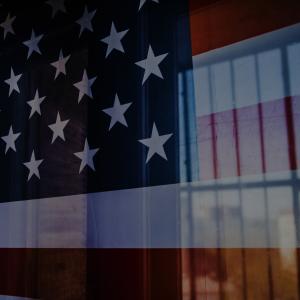
Image via maradon 333/Shutterstock.com
On Oct. 27, 1994 — 21 years ago today — the U.S. Department of Justice reported that the United States’ prison population had reached over 1 million people. By comparison, that’s the same size as San Jose, Calif.— the tenth biggest city in the US.
Today, the United States’ prison population is over 1.5 million — the size of Philadelphia, Pa., our nation’s fifth largest city.
Yet the size of our prison population — the largest in the world — is only part of the problem. Communities of color and poorer communities are disproportionally sentenced to prison — the result of systemic injustices including income inequality, school-to-prison pipelines, and racial profiling.
We mark many positive anniversaries here at Sojourners, but the work of justice also necessitates recognizing ongoing abuses of human dignity over time. So today, on the grim anniversary of 1 million people housed in our prison system, we choose to remember them and all those still behind bars. Here are ten articles we’re re-reading today about mass incarceration — and how to end it.
What Christians Really Think About Contraception
Spoiler alert: Christians don't agree.

Image via areeya_ann/Shutterstock
“Greater contraceptive access should not be a matter of debate,” says Dr. Jeffery Peipert. But try telling that to those making the decisions for our government and churches.
Lady Gaga's New Video Shows the Reality of Campus Assault, and How We Can Help
Unlike her previous music videos, known for their theatrics and intricate dance numbers, Lady Gaga’s new video “ Til It Happens to You” opens on a simple black and white shot of a college dorm. Like most dorms across the country, the walls are sparse cinderblock, the floors are tiled, and the desk and beds are made of heavily lacquered pinewood.
Like many dorms across the country, this set is the scene of multiple sexual assaults. More than one-in-five women are sexually assaulted or raped on college campuses each year. Lady Gaga’s video was made in conjunction with the documentary film on campus rape, The Hunting Ground, and the stories her video portrays are both unique in their details and disconcertingly familiar.
There are harrowing scenes to watch, but the video does not end on the nights of the assaults. Each survivor has to deal with the trauma in her own way. They pull away from their friends. One fears the bathroom and stops showering. The two friends are unable to talk about what happened and one drops out of school.

